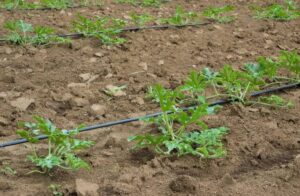Farm Irrigation requires adequate supply of water all time to ensure cultivation of crops on time and high production. Different crops require different flow rates thus the need to know various engine pumps for irrigation in Kenya.
Technical data and prospects such as operation, cost, and durability help determine the pump that suits you.
Available in pressure ranges of up to 20 HP.
Features of Engine Pumps
- Steel non-corrosive metal casing or plastic casing to prevent chemical reactions.
- Designed with engines powered using fossil fuels such as diesel and petrol.
- Available in varying pressure ranges, sizes, and applications.
- They are portable thus can be easily shifted from place to place for use.
- Engine pumps are compact allowing them to be convenient for many uses.
- Most Engine driven pumps are self-priming thus no need to worry about priming when in use.
- Air fans are designed to cool the engine.
- Fuel tanks with a maximum capacity of up to 10 L.

Components of Engine Pumps for Irrigation in Kenya
- Engine
- Casing
- Impellers or Diaphragms
- Suction pipe
- Inlet part
- Outlet threaded part.
- Fuel tank.
- Pressure switch.
- Hose delivery Pipes.
- Check valves or Ball valves.
Types of Engine Pumps for Irrigation in Kenya
- Centrifugal Pumps – Irrigation pumps that supply water through rotation of the impellers. Centrifugal pumps consume either petrol or diesel fuel to provide power that that runs it. They have higher flow rates and are common for irrigation in rural and semi-urban areas as they are reliable.
- Diaphragm pumps – Pumps that push water to delivery pipes using alternating diaphragms. The engine of diaphragm pumps works on petrol or diesel to provide high suction lifts. Diaphragm pumps are applicable to supply clean water and irrigation water with solid particles.
- Hand Pumps – Simple pumps operated manually for irrigation of small-scale farms. Recommended for suction of water from shallow wells and rivers.
How to Operate Engine Pumps for Irrigation in Kenya
- Assemble all the parts of the pump and pipe connection.
- Mount the pump on a stable ground surface.
- Open the fuel tank and fill it with petrol or diesel as per the type of pump.
- Connect the delivery hose pipe to the pump outlet.
- Insert the suction pipe to the water source. Ensure it is fitted with a filter net or material at the suction end of the pipe.
- Start the pump.
- Monitor and increase water pressure to reach the desired flow rate.
How to Choose Water Pumps for Irrigation in Kenya
- Consider Water quality – To enhance efficiency, choose a pump that can handle the type of water you are using for irrigation. For silty water consider a pump such as diaphragm pump
- Pressure rating – The pressure is a critical factor to look at because it determines flow rate and balance in distribution of water. Choose the pressure rating that suits your water needs.
- Flow rates – The average flow rates of a pump should be included in the list of factors to consider. Flow rates determine the suitable application of a pump.
- Power Source – It is good to know the type of fuel a pump is designed to use before deciding to use. This helps you to consider the cheaper or most suitable option for you.
- Durability – Go for a quality pump that has a high level of durability. User reviews and brand reputation can help determine durable and effective pumps.
- Efficiency – Consider whether a pump has effective operation to enhance your irrigation easier.
- Type of Irrigation Method – The type of irrigation you are working on determines the type, size, and pressure rating of a pump to go for. The pump should meet the needs of your irrigation system.
- Type of Crop – Crops have different water requirements; hence you should look to see whether a pump is suitable.
- Cost – Cost is the main factor to consider. Before you settle on a pump, it is good to think about the cost. Is it within your budget? If not, consider a pump within your budget reach that can work perfectly for you.
Other Uses of Engine Pumps
- Water distribution to construction sites
- Sprinkler irrigation systems
- Supply of water and light liquids in industries
- Suction of slurry waste in domestic and commercial areas.
- Pumping and supply of clean water to domestic supply systems.
- Distribution of water to storage tanks for future uses.
Engine Pump Prices in Kenya
The Cost of engine pumps in Kenya varies depending on the size and application of the pump. Aqua hub Kenya has the best pump prices ranging from KES 10,000 – KES 100,000.
Call 0790719020
Where to Buy Engine Pumps for Irrigation in Kenya
We have diesel and petrol engine pumps for irrigation in Kenya at affordable prices. All sizes and pressure ranges available.
Contact us for pumps, irrigation systems, greenhouses and other farm solutions.
Call 0790719020
Frequently Asked Questions
Consider the flow rate of the pump to determine its size
27–30 sprinklers
8-9 m high.
Centrifugal pumps release high water rates at low pressure while irrigation pumps work at high pressure for low flow rates in agricultural applications.
Yes. Depending on the type of sprinkler it can run several numbers.
Consider the type of pump, quality of water source, size of the pump, cost and durability.
Aqua Hub Kenya
Call 0790719020





